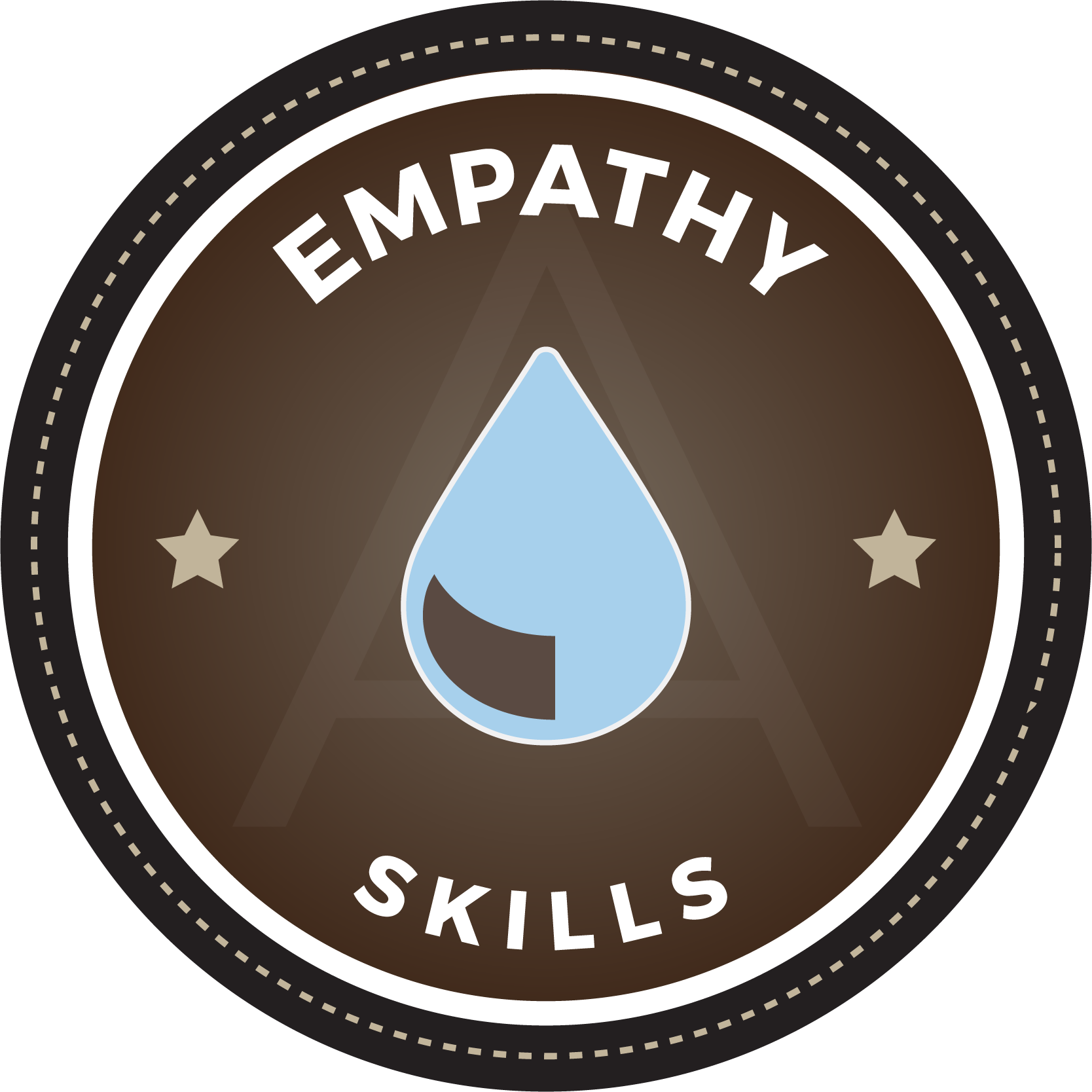How to Demonstrate Empathy on Casper®

About Empathy
Empathy has been a buzzword for the last decade or two. Beyond being kind and considerate to others though, what exactly does empathy entail?
To cultivate and demonstrate empathy, there are a number of behaviours and attitudes you should develop.
Empathy as a Skill: What Does That Really Mean?
You need to practice being attentive to the needs and feelings of others, picking up on their subtle cues and putting these cues together with the context of the other person. Recognize that a person's circumstances including economic, cultural and religious backgrounds and geographic origins as well as their identity, including gender, sexual orientation and ability should be taken into account to understand them. Tailor the way you interact with others to meet their needs and feelings.
Empathy means taking an active interest in the other person, but also acting on that interest to help them. Practicing an empathic outlook co-occurs with practicing a service orientation. Respond not only to the needs of the individual, but also respond to the needs of the community and population in a socially accountable manner.
Keep in mind the common saying "think ill before evil." For example, if someone cuts you off in traffic and you see them speeding ahead through a yellow light, you can respond in one of two ways: tell yourself that the person who cut you off is an inconsiderate jerk or you can tell yourself that they maybe slept poorly, missed their alarm, and are trying to make it to an important meeting on time.
Empathy in a Professional Setting
In order to better understand how to perform well on empathy metrics on Casper, it is helpful to understand why this is being measured in the first place.
Why are medical schools and other health professions programs so interested in selecting applicants who possess empathy?
Let's look at an example in a professional context for some insight. Below, we'll share a story an example of effective empathy in a surgeon's office.
65-year-old Frank had worked construction his whole life, and he desperately needed a knee replacement. It had gotten to the point that Frank couldn't even walk the two blocks over to visit his grandchildren. Frank had been a candidate for knee surgery for several years, but had been rejected by the two orthopedic surgeons he'd seen.
Frank was a Jehovah's Witness, which meant that he had a religious objection to receiving a blood transfusion. As Frank was on blood thinners for his heart issues, the surgeons he had visited deemed him an unacceptable bleeding risk and declined to operate. "If you won't consent to the possibility of receiving blood, I just can't help you, Frank." They even tried to get him to reconsider his belief. Frank knew they thought his view was ridiculous, but they just didn't understand his values.
Frank's family doctor was determined to help him and referred him to another surgeon; one who had a reputation of going the extra mile for patients. Frank's wife drove him to the surgeon's office and Frank explained his situation. The surgeon listened to him, knowing that this patient's beliefs needed to be respected, even though they weren't beliefs that the surgeon shared.
"I'll do some research and talk to some colleagues to see if we can find a way to get your knee replaced, Frank." The surgeon contemplated the problem, empathizing with Frank's dilemma: if he got the knee replacement, he could be shunned by his church and community, and even his family.
A few days later, the surgeon's office called Frank with the news: the surgeon had found a colleague who practiced bloodless surgery-a combination of techniques to minimize blood loss-and Frank could get his knee replacement! Frank hung up the phone and, with tears in his eyes, hugged his wife.
***
A doctor who practices empathy can completely change a patient's perspective on the medical profession and even the healthcare system. People need their needs met in a way that works for them, and this can only be achieved through empathizing with the patient.
Frank was lucky to find a surgeon who understood how important Frank's beliefs were to him and who respected those beliefs. And because of his empathetic surgeon, Frank was able to have his health problem resolved-a life-altering problem that never would have been fixed by the unempathetic surgeons.
Given this example, you can understand why medical schools and other health professions programs are so interested in choosing applicants who can display empathy.
So How Does Casper Evaluate You on this Skill?
Casper poses common scenarios and reflective questions aimed to determine if you possess the People Skills that you will eventually require to be a successful professional. Start Practicing
Are you READY for Casper?
We prepare candidates for Casper with practice questions, strategies to improve critical thinking skills, scoring on our simulated tests, and one-on-one coaching sessions to maximize performance on Casper. Let's get you ready!
Simulated Casper Tests
Challenge your Casper skills with 4 difficult Simulated Casper Tests (Levels 1-4). Start at Level 1 and increase the level of difficulty!
Starting at $27 Go to Simulated TestsSimulated Prep Courses
Learn strategies for answering difficult Casper questions and convert beginner to advanced answers.
Bundles with Coaching
Fast-track your skills with our bundles (simulations and courses with scoring and coaching add-ons) to identify weak areas.
Starting at $197 Go to our Bundles